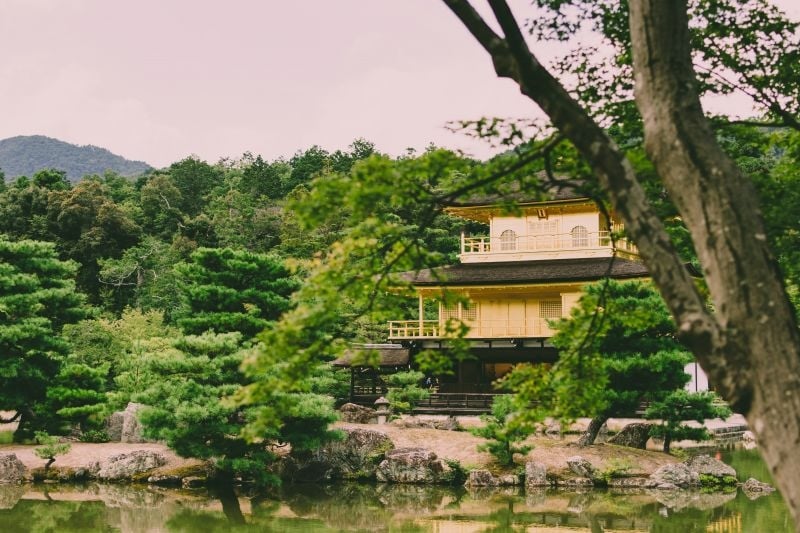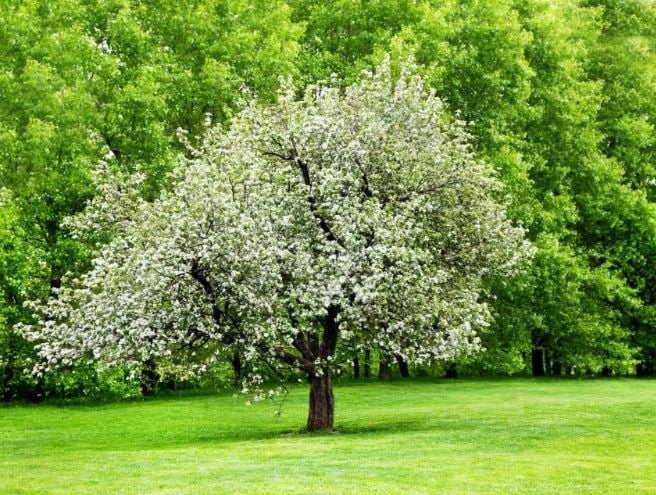Every year, countries have a special day dedicated to tree planting to honor the importance of trees to human life. “Arbor Day” is changed depending on the planting season and the choice of each country.
Trees provide shade, purify the air, and freshen up neighborhoods and people’s daily lives. Impressed by the power of trees, US President Theodore Roosevelt even wrote a letter in 1907 encouraging young people to plant them. “A nation without children faces a hopeless future. A country without trees is almost hopeless,” Roosevelt wrote.
In the United States , “Arbor Day” falls on the last Friday of April, except for some northern and southern states, which celebrate the day on different dates. According to the “Arbor Day Foundation,” a nonprofit that has helped plant 500 million trees in 50 countries since its founding in 1972, many American cities take advantage of the spring to plant or distribute trees. According to Richard Olsen, director of the US Environmental Protection Agency, trees not only provide shade, but also absorb carbon and release oxygen, making cities more livable. “Today, the number of urban residents around the world has never been higher. For urban environments to be sustainable and resilient, we need trees,” Olsen added.
 |
| Redwood trees at Muir Woods National Monument, California, USA. Photo: Suzy Mast |
Although the first known tree-planting festival took place in the small town of Mondoñedo, Spain, in 1594, the current “Arbor Day” celebration originated in Nebraska, a state in the United States.
According to the Arbor Day Foundation, Nebraska had very little forest cover when the first settlers arrived, exposing them to the wind and sun, and making it difficult to find wood for fires and shelter. The first “Arbor Day” in the United States was celebrated on April 10, 1872, at the initiative of J. Sterling Morton, a Nebraska journalist.
“Arbor Day” was recognized as a state holiday in Nebraska in 1885. Other states soon adopted the day, and it was celebrated nationwide in 1970. J. Sterling M. Morton once said, “Other holidays are rooted in the past. Arbor Day proposes the future.”
According to the Kent Historical Society, in 1895, American naturalist andeducator Birdsey Northrop visited Japan and lectured on the importance of planting trees. Today, Japan celebrates nature every May 4, a day called “Midori no hi” (Greenery Day). More than just a holiday to relax, “Midori no hi” is an opportunity for Japanese people to get close to nature, appreciate the values that nature brings and nurture a beautiful soul.
 |
| “Midori no hi” carries deep cultural significance for the Japanese people. Photo: Tokyoesque |
Previously, “Midori no hi” was celebrated on April 29, the birthday of Emperor Showa. However, after the Emperor passed away, since 1989, April 29 has been designated by law as “Midori no hi” with the meaning of “A day to be close to nature, appreciate the values that nature brings and nurture a rich and beautiful soul”. In 2007, “Midori no hi” was moved to May 4 and April 29 was changed to “Showa Day”.
In Italy , the first “Festival of Trees” was held in 1898 and was initiated by the then Minister of Education, Guido Baccelli. In the Forestry Law of 1923, the “Festival of Trees” was institutionalized in Article 104: “The Festival of Trees is established, which will be held annually in a form agreed upon by the Minister of Economy and the Minister of Transport and Infrastructure”.
 |
Italy celebrates November 21 every year as “National Tree Planting Day”. Photo: Getty |
In 1951, according to the Circular of the Italian Ministry of Agriculture and Forestry, November 21 was designated as “National Tree Planting Day”. The objective remains unchanged to this day: to educate the new generation about the importance of trees and nature. Although it has been around for more than a century, “National Tree Planting Day” is still a very topical event. In fact, this holiday gives everyone, especially young people, the opportunity to actively contribute to the protection of the green heritage, which is essential for the well-being of the community.
The Niger Festival of Trees has its roots in the country’s colonial history. A decree issued by the colonial governor of Niger on January 25, 1937, established a day dedicated to tree planting in towns and schools. The initiative was intended to raise awareness of the importance of reforestation in a country where deforestation had begun. The tradition continued after Niger gained independence. In 1964, an article in the government newspaper mentioned the importance of tree planting during the festival marking the fourth anniversary of independence.
 |
| Nigerien military and people participate in the “National Tree Planting Day” on August 3, 2024. Photo: anp.ne |
On August 3, 1975, under the regime of the Supreme Military Council (SMC), tree planting was once again included in the festival program, thereby reinforcing the idea that the fight against deforestation and environmental protection were national priorities. The link between national independence and environmental protection became a powerful symbol, uniting the entire population for a common goal.
With the advent of the 7th Republic of Niger, the festival of trees took on a new dimension. Every year, the government commemorates the day by tying it to Independence Day. So, a specific theme is chosen and an area is designated to host the festival, a week before August 3.
Decree dated 31 July 2024, approved by the Council of Ministers of Niger, designates 3 August as “National Tree Planting Day”, aiming to legalize this celebration in the national calendar.
By combining the celebration of independence with the conservation of natural resources, Niger is positioning itself as a committed player in the fight against climate change. By planting trees, the country reaffirms its attachment to the land and its future.
Since 1985, the people of Benin have participated in the “National Tree Planting Day”, an annual celebration that celebrates nature, trees and their role in the fight against climate change . In 2024, to mark the 40th anniversary of the “National Tree Planting Day”, the Benin government has adopted a project dedicated to communication and awareness raising on climate change and the country’s Nationally Determined Contributions (NDCs), calling on the people to once again take the role of trees seriously.
 |
| Tree planting campaign carried out in the city on the occasion of "National Tree Planting Day" in 2024 |
The nationwide tree planting campaign on the occasion of “National Tree Planting Day” 2024 was a great success, demonstrating the joint commitment of local communities, authorities and partner organizations to environmental protection. The 1,500 trees planted symbolize a concrete contribution to the fight against climate change.
In a world where environmental challenges are increasingly pressing, the annual celebration of Arbor Day in each country takes on even greater significance.
PHUONG LINH (according to america.gov, uncclearn.org, lautrepublicain.com)
* Please visit the International section to see related news and articles.
Source: https://baodaknong.vn/ngay-trong-cay-tren-the-gioi-241771.html



































































































Comment (0)